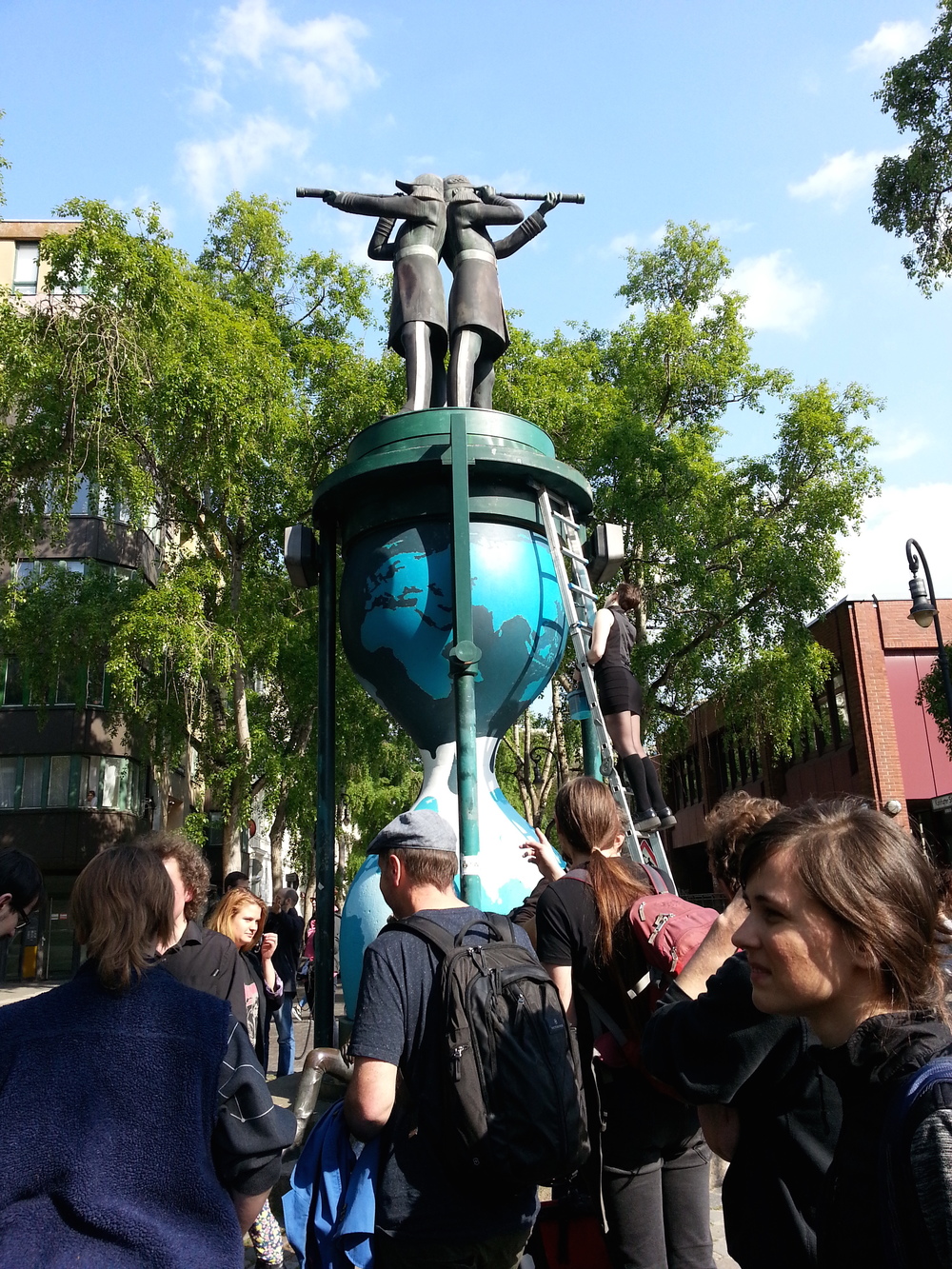
in Kreuzberg (Berlin), says local MP Hans-Christian Ströbele at the unveiling of friend and fellow artist Topsy Qur’et’s “Doppelwelt” WikiLeaks tribute today.
The WikiLeaks logo in 3D spills more secrets. It looks like the dark dripping is making the world lighter below, as if transparency brings about a chemical reaction rather than spreading dirt like pigment. The clock on two sides of the original “Doppeladmiral” statue modernizes and underscores the hourglass that might symbolize the ticking clock of politics (e.g., of climate change, income inequality, arms trade, mass surveillance—the overall global resources endgame). And the sunshine? It always makes life more beautiful. (Try it sometime, Mr. President.)
Today, on World Press Freedom Day, I’m grateful to live—as an American expat—in a country where freedom of press remains valued such that a treason probe of journalists can get the top state prosecutor fired. This precedent contrasts sharply with the reality of limited freedom of speech and press in America today, where the war on whistleblowers continues—along with secret prosecution of journalists and publishers.
As Edward Snowden writes for The Intercept today, whistleblowing is an act of political resistance. Its alternative—secrecy in the face of private information that public institutions are working against the public interest, violating rule of law in letter and in spirit—prevents accountability. Snowden defends the faith that accountable government is fundamentally American; unrestrained power, fundamentally un-American. “And there are more of us than there are of them.”
With all due respect, I’m not so sure about all that. The American idea has always been aspirational at best, hypocritical or disingenuous through other lenses. In that context, injustice is not an information problem that can be solved by whistleblowing alone. As Nina Simone wrote, “Everybody knows about Mississippi, Goddamn!”
In other words, perhaps the U.S. system of inoperable checks and balances that promises equality, but was built on the backs of beaten slaves and poxed natives, is working and has always worked more or less as designed—to maintain unequal access to the very life, liberty, and pursuit of happiness we were promised as inalienable rights. Telling people that we have different systems of justice for poor and rich, black and white, foreigner and citizen, political dissident and lackey, doesn’t actually transform a police state into a nation of laws. In fact, it may only underscore that people who aren’t willing to lose everything should shut up, sit down, and have some more bread and circus (or Doritos and Netflix, as the case may be). Most people probably will.
But as the old saw goes, 20% of the people in any given group are usually doing 80% of the work. Which means that, with the right people, it doesn’t take that many. With groups like Black Lives Matter and Anonymous surveilled, infiltrated, discredited, and disrupted at levels consistent with the 20th century history of Cointelpro, maybe we are not legion after all. Maybe we don’t have to be.